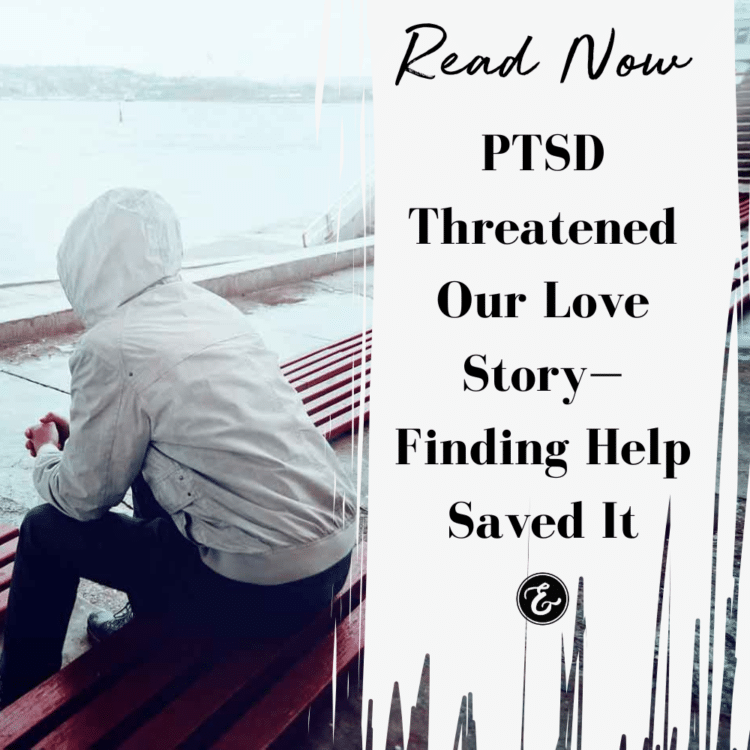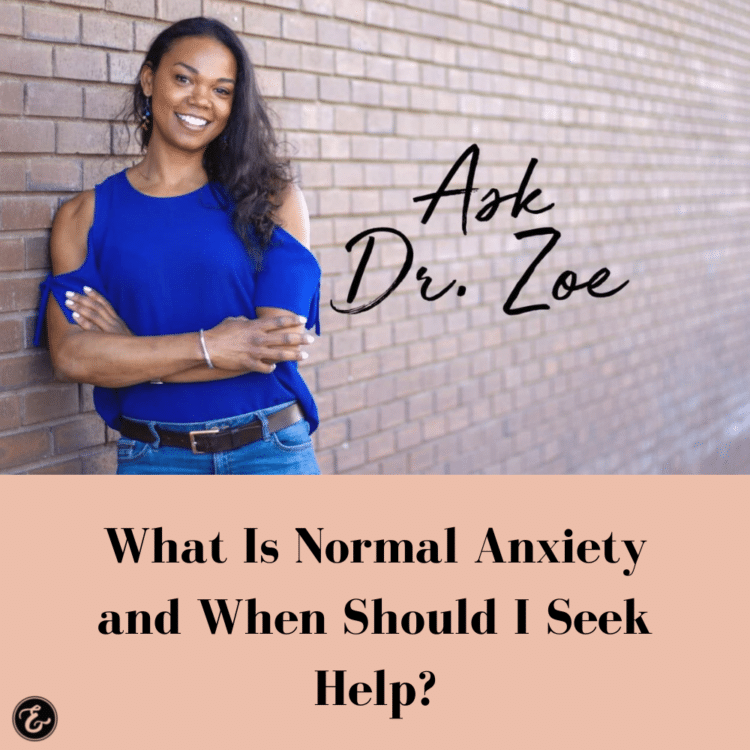*Trigger Warning: This article mentions suicide and self-harm*
I am no trained therapist, but I am also no stranger to trauma.
A triad of trauma began in my life when I moved overseas as a missionary. Before two years on the field were over, my husband left me. The trauma of divorce. Abroad. Alone.
My next boyfriend, a fellow English teacher working with me in Tokyo, struggled with mental illness. I found his body after he committed suicide. I would go on to my own unsuccessful suicide attempt and years of self-harm. My perspective of pain shifted even further when, years later, I was sexually assaulted as a flight attendant in a foreign country. All of this to say, I’m no licensed therapist but facing post-traumatic stress and crafting my own coping mechanisms is very real.
Healing from PTSD
In your PTSD coping and recovery, sometimes you and Jesus are going to be the heroes. While healing is never linear, my pursuit of wholeness has shaped my life in beautiful ways. I found the cliche that “time heals all wounds” to be a lie. Time only heals when we utilize it to put in the work required for our healing. It’s a tall order, but in Christ, nothing is impossible.
Post-Traumatic Stress Disorder
Being our own hero does not mean ignoring the pain, suppressing it, or wishing it away. Being our own hero means boldly fighting the good fight, pursuing every step needed to inch toward wholeness.
Heroism is bold, honest about how it is feeling and why, challenging us to be vulnerable with ourselves and others for the sake of our future. No more ignoring how we feel or keeping quiet about the reality of our pain!
What Are the Symptoms?
What do they look like? The symptoms of PTSD present themselves as flashbacks, where we relive horrible moments and memories, being triggered by things that “take us back to that moment.”
PTSD can present itself as avoidance of any people, places, things that are reminders of the trauma. Super irritability or overstimulation also can result from post-traumatic stress. The feeling of your skin crawling, the inability to calm down when you’ve done all the things you should like limiting caffeine, avoiding screens at bedtime, etc. could indicate PTSD. Intrusive negative thoughts, negative self-talk, or numbness, they’re all possible indicators.
After my boyfriend’s suicide, I was so crippled by flashbacks that I couldn’t sit in a coffee shop without being slung back in time if a song we’d shared was playing. It was hard to open up about any of it, but absolutely necessary for survival.
Sharing Your Trauma Isn’t Bad
Just know, your trauma is not toxic nor too dangerous to share. Our trauma feels toxic. I get it. Especially if you love someone, you don’t want to expose them to that same pain. This is a lie meant to isolate you.
I realize that sometimes we are unfairly forced to be our own greatest advocate. For myself, I was coming from such pain that my family and friends couldn’t understand. Their heart was to help, but they were so ill-equipped. While it feels unfair to be your own hero, sometimes you must choose between waiting to be saved or wanting healing more.
Months after the suicide when I sat on my parent’s front lawn in an emotional and mental coma, they wanted to help me but there weren’t the words. There was no point of reference for them for what I was going through.
The love of Christ becomes even more invaluable to us when we realize that He is the only one who can truly meet us where we are. God’s word truly comforts and carries us.
Healing Starts with You (and Jesus)
During my yoga teacher training, I saw a formula other instructors use to process their feelings. Using a journal, you’re able to draw four quadrants: “Mental, emotional, physical, spiritual.” Under each title, you’re encouraged to write how you feel currently in each. Then, as a yogi, you’re meant to ask yourself, “Is this true? What is the truth here?”
I commandeered this formula and brought it to my devotional times, responding to each false feeling with a biblical truth or why God’s word said that this was true. It got me out of my head and back into His word every morning when I wasn’t feeling it.
And It Blooms in Community
Healing occurs in the community. While our processing time alone with Jesus is irreplaceable, it is a step that we’re taking so we are strong enough to commune with other believers. Healing occurs when you realize you are not alone. You are not condemned to suffer alone.
When everyone’s trauma is different, there is something redemptive when you learn that other humans have similar stories. Community can heal. But make no mistake—you and Jesus are still the champions. When you find a supportive community, it’s still up to you to go back. You can research all the groups in the world, but you’re the one putting the key in the car ignition to get there. Unless you’re blessed with a beautiful and rare friend equipped to carry you, support you, look after you when you can’t do it yourself.

Overcoming triggers and anxiety takes work. Socrates was right when saying, “To know thyself is the beginning of wisdom.” The gradual overcoming of anxiety and triggers takes extreme mindfulness and work.
Find a Way to Feel Good
Firstly, you must know what it feels like to feel good if you want to know when you don’t. Think of what you enjoy, think of what you do well, think of the activities where time flies by and you don’t even notice the clock. Once you know yourself and your interests, you begin by carving out time for the things soothing to your soul. Loss of interest in former activities is a symptom of PTSD, but don’t let it deter you from trying. And trying again.
It wasn’t until I carved out space in my schedule, said “no” to some good-sounding hobbies and time killers, and experienced true rest before I knew how badly I felt without it.
Diet, exercise, and sleep are non-negotiable. In my own journey, I asked my therapist and psychiatrists to please help me move forward for as long as possible without medication. Everyone’s journey is unique to them. We need to know ourselves to be aware of the best course of treatment.
My medicine became exercise. Insomnia was a big contributor to my triggers, so I figured I needed to make myself good and tired. The sunshine I got from taking up paddle boarding, the relaxation techniques I learned from regularly practicing yoga plus the serotonin I built from hourly walks every day changed my life.
Exercise takes time. Pursuing healing takes time. Everything valuable costs something. My pursuit of exercise as medicine taught me how to self–advocate for my time. There were other activities I told “No” in order to make time for my exercise routine. The people supporting my healing journey joined me in getting some steps in, too.
My exercise brought on tiredness, causing me to realize I fought exhaustion with chemicals. Need to calm down? Have a cocktail or a glass of wine. Need to stay awake? Have a black coffee. I avoided carbs, dairy, anything that would make me feel full or sleepy.
Another symptom of PTSD can be self-harm and eating disorders. Before I practiced mindfulness, I practiced both of those. It wasn’t until my therapist started talking to me about my hours of sleep a night, about my caffeine intake in the afternoon, about the effect of alcohol on sleep that I realized I was chemically enhancing my own symptoms. We are each on our own journey, but it took me a few years to be healed enough to have a glass of wine as a treat and not as self-medication. Only you can know the difference as you sip.
Gradually getting a grip on my diet and exercise, I saw the hours of my sleep lengthen. I learned what it felt like to “feel good” and how many hours I need to feel that way. You and Jesus are both master and student of this process.
Rethink How You Think
Someone shaped our brain, but now we are in charge. Our neural pathways are literally just that: pathways. Like the Oregon trail with miles of grooves worn by the regular passage of wagon wheels, our brain wears grooves on the path we allow it to regularly take.
Trauma rewires our brain as it tries to cope with its circumstances. I personally suffered extreme disassociation with extreme bouts of depression swinging to high levels of mania. My sleepless flight attendant life and long nights kept me in this cycle for a long time. Again, we and Jesus are the dynamic duo and our own heroes in this situation.
The anger against our victimizers is real. For more than seven years, I expended so much of my energy being angry at the people who hurt me. I’d find myself zapped of the strength to pursue things I wanted to do, spending so much time wishing they’d suffer or resenting them.
Eventually I recognized the pattern. With God’s help, I prayed to be free. I wanted to forgive them so that I could be free. The anger and desire for revenge wasn’t worth my energy anymore.
On occasion, I thought back on the man who’d assaulted me and wished I’d done more to punish him. Over time, not just on one day, I realized how much of my energy was wasted on him. He didn’t deserve another ounce of my mental attention.
Neuroplasticity and rewiring our brains are all about training the muscle in our brain in the reactions and actions we prefer. For example, if we think a negative, we actively recognize and state a positive. If we feel a particular emotion, we ask our journals if this is true and then record the truth instead.
Our feelings are temporary and untrustworthy. To rewire my brain, every time I felt that soul-zapping, crippling anger, I asked God to take away the anger and to enable me to forgive them. This story is no longer about them, it’s about us and the life that we want to create in Christ. We are taking back our stories, with our victimizers now powerless. Even when our emotions say otherwise, it simply isn’t true.
Give Yourself Grace
Be gentle with yourself. Post-traumatic stress is exhausting. Recovery can be long, but worth it. In the process of getting to “know thyself,” learn the ways that you truly rest. You’re going to need it. Whatever brings your soul joy, do that thing. The Bible commands a weekly Sabbath for man, a day to “carry no burdens of any kind.” I’d venture to say that includes the pursuit of healing, which is hard work.
On some days, the fight will take the form of resting. On some days, the fight will take the form of not fighting, but waiting until you’re fed, rested, and in healthy community before you start your mental homework again. You’re the master of your story, with agency and resilience over your life.
You and Jesus are in charge now. You have all the time in the world. Be sure to take the time you need, a whole day weekly and several moments during the day, to rest. Truly rest. Focus on your breathing. Get sun exposure. Be around loved ones or other people. It is hard work being a hero. But you and Jesus have got this.
***
Disclaimer: My article is referring to post-traumatic stress disorder from past traumas I experienced. If you are in a current situation that is traumatizing or injuring you, seek help. Reach out to our team here at Grit and Grace Life or a local ministry. You are never alone. Know that you are the master of your own story starting right now. You are loved.
—
If you’ve suffered traumatic situations that you’re not sure you can come back from, we urge you to listen to this podcast episode: Do I Still Have Time to Rewrite My Life Story? with Mandisa – 192














